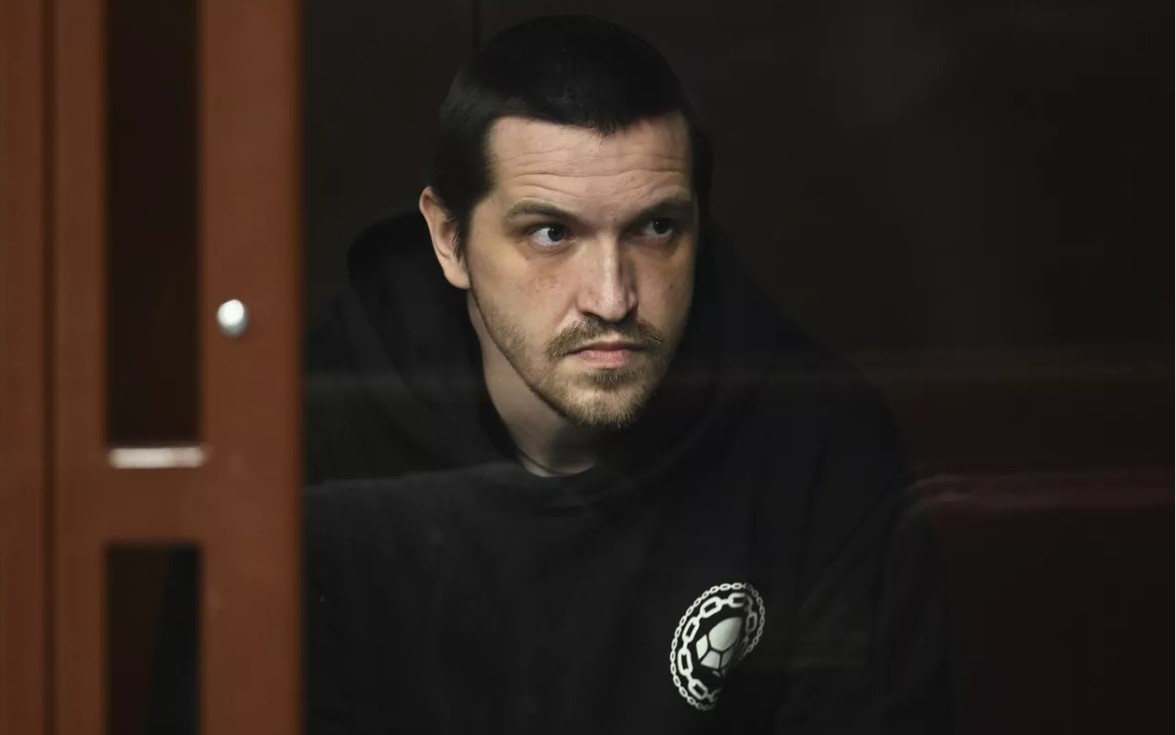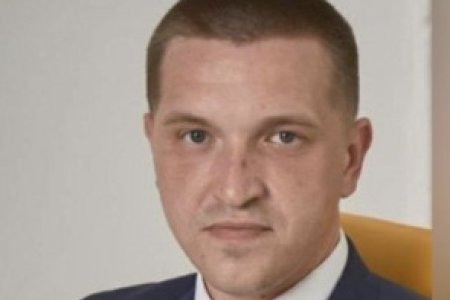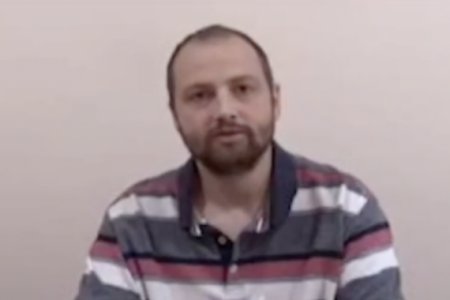
The latest hearing has taken place in Russia’s illegal ‘trial’ of Pavlo Zaporozhets, a Ukrainian war veteran who defended Ukraine in Donbas from 2014 -2017 and then returned to active service after Russia’s full-scale invasion. The 33-year-old was in Kherson when the Russians invaded and seized control of the city, and he joined Ukraine’s Military Intelligence. Although captured by the Russians while carrying out a task from his command, Russia is refusing to recognize his prisoner of war status and has, instead, claimed that Zaporozhets was carrying out an act of ‘international terrorism’.
Crimean Process is following the ‘trial’ at the Southern District Military Court in Rostov which has long been notorious for its part in Russia’s ever mounting number of Ukrainian political prisoners. At the latest hearing on 20 September, Zaporozhets explained that, in order to fulfil his constitutional duty to defend his country, he had joined Military Intelligence [HUR], which is part of Ukraine’s Armed Forces. He had been instructed to eliminate a military patrol on one of the streets in Kherson which was, then, under Russian occupation. Zaporozhets categorically denied the claim made in the indictment that this had been directed against “Ukrainian and Russian civilians”. On the contrary, the act had been deliberately planned for late at night when there was a curfew in place in occupied Kherson in order to ensure that there were no civilian victims. The defence has also pointed out that all of this took place in Kherson, a Ukrainian city which Russia had invaded, in which there were unlikely to be Russian civilians.
He had been captured, while trying to carry out this task, by Russian solders who took him to the police holding unit in Kherson where he was held for the following three months. During that time, he was subjected to constant beatings and torture, including with the use of electric currents. Such torture was used to force him into signing the documents put in front of him and to hold grenades in his hand, in order to use the resulting fingerprints and DNA on the grenades to fake ‘material evidence’.
Three months after his capture, Zaporozhets was taken to occupied Crimea, however this changed only the place of his imprisonment, with the torture and beatings continuing.
“A crime was indeed committed in Kherson”, Zaporozhets stated, “but not by me, a citizen of Ukraine who was defending his country, but by the Russian soldiers who abducted and tortured me and then took me to the Autonomous Republic of Crimea”.
Zaporozhets’ words and testimony regarding the torture were not to the liking of the state prosecutor. He insisted on reading out the earlier ‘confessions’ which Zaporozhets had just said that he signed under duress. Zaporozets repeated that these had been extracted through torture after the prosecutor stopped reading. Cases where testimony given in court, in the presence of an independent lawyer radically differs from ‘confessions’ obtained when a person was held incommunicado and without access to an independent lawyer should result in, at very least, an investigation into the defendant’s allegations of torture. At least in Russian ‘trials’ of Ukrainian political prisoners, this almost never happens, and the ‘confessions’ are still treated as ‘evidence’.
Zaporozhets is, fortunately, represented by Alexei Ladin, who has defended many Ukrainian political prisoners. During the same hearing, Ladin applied to include in the case questions put to a Kherson resident who is mentioned in the indictment as a formal ‘witness’ in a whole range of operational measures and investigative activities. The person explained that he had been detained by Russian soldiers in May 2022. This was supposedly to check his documents and telephone, but he was threatened with imprisonment if he did not sign a number of printed documents which he was not given time to read. This supposed witness has confirmed that he did not take part in any operational or investigative measures and, in several cases, could not have because of the curfew in place. He says that it is possible that his signature, obtained under duress and without his having witnessed anything, is on the documents in Zaporozhets’ case. Ladin also asked for proof to be sought of any material confirming checks into Zaporozhets’ abduction and torture.
Zaporozhets’ ‘trial’ began on 2 February 2023, almost three months after Kherson was liberated. This is worth stressing as Russia is accusing a Ukrainian defending his own country against an invading state of ‘international terrorism’ under the invading state’s legislation over actions on illegally occupied Ukrainian territory.
The next hearing is scheduled for 27 September.



